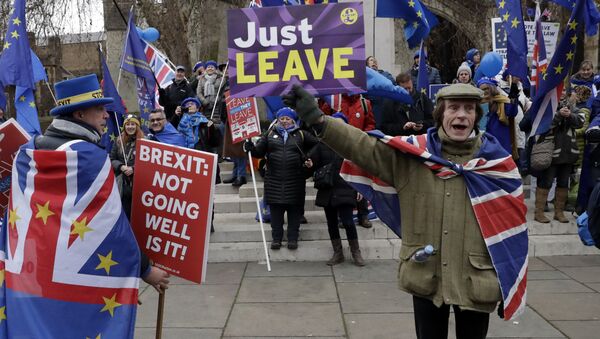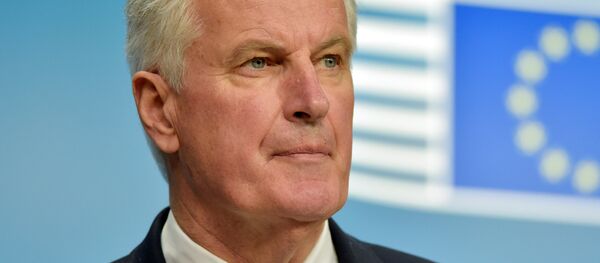According to the UK-based media outlet, senior Tory and Labour lawmakers allied to set a new, legally-binding deadline of mid-March for any EU agreement to be ratified.
UK Prime Minister Theresa May said Tuesday she would make a statement in Parliament on 26 February if her Brexit deal has not secured a majority in the House of Commons before then. The debate on the amendable motion will be held on 27 February.
According to The Sun, Labour MP Yvette Cooper and former Tory minister Sir Oliver Letwin unveiled a new bill to force the government to apply for an extension to the Article 50 talks and delay Brexit if the March deadline isn't met. Moreover, up to 20 Tory ministers will reportedly threaten to resign if they are denied a free vote on the bill.
READ MORE: Brexit Shambles: UK Politicians Revealed to Be Incompetent — Campaigner
Last week, Labour leader Jeremy Corbyn set out five conditions for his party's backing of the prime minister's withdrawal agreement. The conditions would have to be added to the political declaration and be legally binding.
In a letter to Corbyn, May rejected the customs union idea, but agreed to consider changes on workers' rights and environmental funding. Speaking to the lawmakers on Tuesday, May said she would be willing to introduce a law that would allow the UK parliament to adjust regulations on employment rights to keep up with EU rules.
READ MORE: Farage 'Astonished' as Brexit Party Gets 35,000 Supporters in First 48 Hours
Michel Barnier, the EU's chief negotiator for Brexit, said Monday he found Corbyn's proposal "interesting".
In January, the House of Commons voted against the withdrawal deal agreed upon by May and the European Union, but passed a motion urging for a replacement to a clause on the Northern Irish border. May has already held several meeting with EU politicians in an attempt to secure such changes. The European Union has indicated, however, it will not reopen negotiations on the deal.
The backstop would keep the United Kingdom in a single customs territory with the bloc, while Northern Ireland would be aligned with some of the EU single market rules.




